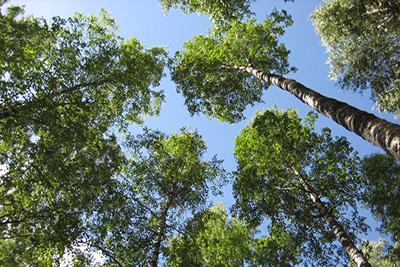MTK reveals: EU intends to extend binding nature restoration legislation to all forests and agricultural environments and take peatlands out of the current cultivation use - MTK en
MTK reveals: EU intends to extend binding nature restoration legislation to all forests and agricultural environments and take peatlands out of the current cultivation use
News
MTK reveals: EU intends to extend binding nature restoration legislation to all forests and agricultural environments and take peatlands out of the current cultivation use
17.02.2022
The European Commission intends to continue to penalize agriculture and forestry. The leaked information about the Commission's proposal for Nature Restoration Law suggests that Finland is being made EU’s northern nature reserve. It is no exaggeration to predict that such legislation would have significant impacts on Finnish agriculture and forestry.
- Thriving nature is important for everyone, but the Commission seems to lack a sense of proportionality and fairness. In addition to ambitious protection targets, the Commission is planning to require restoration measures in extensive land areas, and we fear that this will seriously harm Finnish agriculture and forestry, states Marko Mäki-Hakola, MTK's Forest Director.
Improving the state of biodiversity is essential. Effective and acceptable solutions are already in use in Finland. The environmental sustainability of activities affecting nature is developed continuously. Protection and restoration on a voluntary basis are assisted through the Forest Biodiversity Programme for Southern Finland (METSO) and Helmi Habitats Programme. There is straightforward evidence of national efforts in restoration: through the Helmi Habitats Programme about 6,400 hectares of mires were restored last year, in addition to the measures taken to improve the state of nature in wetlands, aquatic bird habitats, woodland habitats, semi-natural grasslands, and aquatic and shore habitats.
- The EU seems to want to jeopardize the good spirit of working together and the commitment of the agricultural and forestry sector to self-initiated nature work through its own proposals. Commending things from Brussels is not the right way forward, points out Liisa Pietola, MTK's Director for Environment.
The Commission is constantly proposing new legislation related to the environment. Looking at the big picture, it is pertinent to ask whether there is no longer room for the use of renewable resources as a solution to the most difficult environmental challenges of our time. According to the EU Biodiversity Strategy, at least 30 % of the EU's land must be protected. The Sustainable Finance Taxonomy has suggested that 20% of the forest should be excluded from economic use and that past protection should not be taken into account. Regarding renewable energy, it is envisaged that energy wood from certain areas should not be harvested at all.
As the latest chapter of the story, the Commission is preparing a regulation with legally binding targets for nature restoration. The main goal is that by 2050, all areas in need of restoration will be covered by restoration measures. Based on the leaked information, restoration requirements would be very extensive for forests and agricultural areas. The Commission is justifying the extensive restoration not only by safeguarding biodiversity but also by climate benefits.
MTK points out that designating areas for protection or presenting significant restrictions for the use of renewable resources always have effects. In other words, increasing protection and restoration forces us to compromise with other objectives.
- Have the climate benefits of active forestry and the necessity of food production been forgotten in the analysis? For example, the requirement in the Commission's proposal to restore and rewet drained peatlands under agricultural use would jeopardize the security of food supply and further deepen the profitability crisis in agriculture. It is also justified to be concerned about what this regulation would mean for the possibilities to continue sustainable forest management in peatland forests, MTK's President Juha Marttila analyzes.
The proposal does not give the impression that for the Commission social and economic sustainability are as equally important objectives as environmental sustainability, or that respecting ownership rights is an important starting point for actions.
- We have not destroyed our nature in Finland, so we have potential to improve the state of nature. We will certainly continue to do our part in safeguarding biodiversity, but all measures must be landowner-based and within realistic limits, Mäki-Hakola emphasizes.
The Commission also intends to propose that it could, by adopting delegated acts, specify which areas need to be restored. Here, too, the current Commission is trying to gain the greatest possible control over the European Parliament and the Council, which represents the Member States. The same issue has been disputed in the context of Sustainable Finance Taxonomy.
- Does the Finnish government really intend to accept the Commission's grip of power? This needs to be addressed quickly and vigorously. Finland must not be a driftwood floating towards a Brussels-led EU federal state. With this trajectory the last remnants of vitality will be taken from our nation and especially from our countryside, Marttila roars.
Further information:
Juha Marttila, President, tel. +358 50 341 3167
Marko Mäki-Hakola, Forest Director / Forestry, tel. +358 40 502 6810
Liisa Pietola, Director for Environment /Agriculture, tel. +358 50 438 4014

